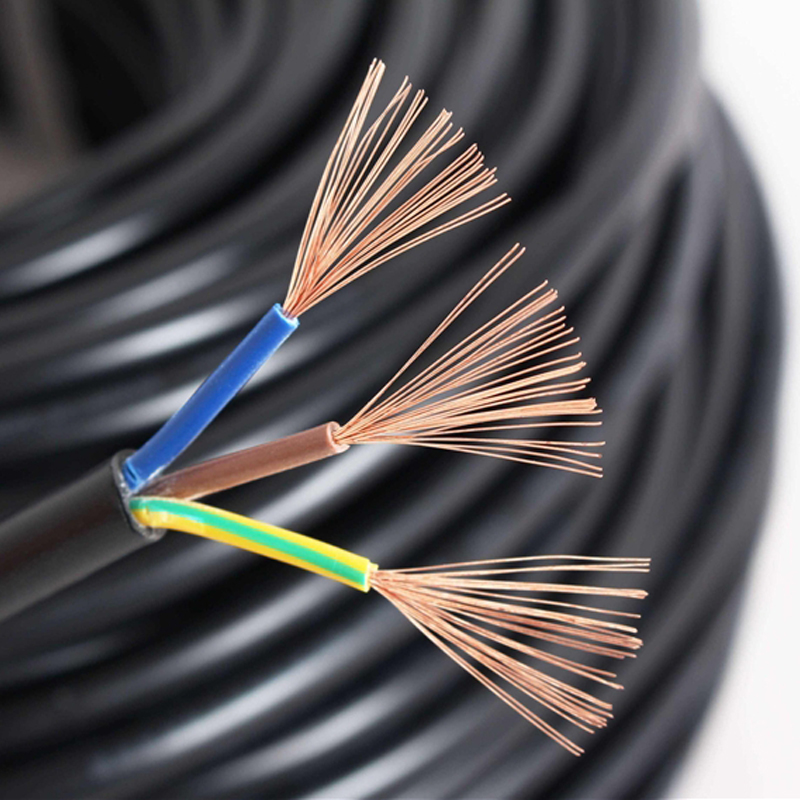
Reliable Industrial Electrical Cable Provider for Your Electrical Needs
The Importance of Choosing the Right Industrial Electrical Cable Supplier
In the modern industrial landscape, electrical systems form the backbone of operational efficiency and safety. Industries ranging from manufacturing to construction rely heavily on a robust electrical infrastructure that is supported by high-quality cables. When it comes to ensuring performance, safety, and durability, the choice of an industrial electrical cable supplier is crucial. This article highlights the key factors to consider when selecting a supplier and the impact it can have on your business operations.
1. Quality Assurance
The primary concern when sourcing electrical cables is quality. Poor-quality cables can lead to system failures, unsafe conditions, and costly downtimes. A reputable industrial electrical cable supplier will adhere to strict quality control measures and comply with industry standards such as IEC, BS, and UL. It is essential to verify if the supplier uses certified materials and if their products are tested for various operational parameters.
Industrial applications require different types of cables for various uses, such as power distribution, data transmission, and control systems. A competent supplier should offer a broad range of cables, including but not limited to, low-voltage cables, high-voltage cables, control cables, and specialized cables designed for specific industries (e.g., marine, oil and gas). This variety ensures that you can find the right type of cable for any application, simplifying procurement and reducing compatibility issues.
3. Technical Expertise
Not all suppliers can provide the same level of technical support. A supplier with a strong background in electrical engineering and applications can offer invaluable assistance in selecting the right cables for your project. This expertise is particularly important when dealing with complex systems where cable types and specifications can significantly influence performance. Look for suppliers that provide technical documentation, installation guidelines, and assistance in choosing the right products based on your specific needs.
4. Cost-Effectiveness
industrial electrical cable supplier

While cost should not be the sole factor in decision-making, it plays a significant role in budgeting for industrial projects. A good supplier will offer competitive pricing without compromising quality. Additionally, consider the total cost of ownership, which includes installation, maintenance, and replacement costs. Investing in higher-quality cables from a reliable supplier can lead to lower maintenance costs and longer life spans, ultimately proving to be more cost-effective in the long run.
5. Delivery and Inventory Management
Timely delivery is crucial in any industrial project. Delays in receiving necessary materials can halt production and lead to financial losses. A reliable supplier should have efficient logistics and inventory management systems in place to ensure that they can meet your delivery schedules. It is beneficial to choose a supplier with a local or regional presence to reduce shipping times and costs.
6. Customization Options
Every industrial application is unique, and sometimes standard cables may not meet specific requirements. A flexible supplier will offer customization options, such as varying lengths, insulation types, and jacket materials. Custom cables can be designed to withstand extreme temperatures, harsh chemicals, or high mechanical stress, making them tailored to your operational environment.
7. Customer Support and Warranty
Finally, exceptional customer support can be a game-changer when working with an industrial supplier. Ensure that the supplier provides comprehensive support, including guidance during the purchasing phase, installation assistance, and after-sales service. Additionally, inquire about warranty options. A robust warranty not only reflects the supplier’s confidence in their products but also provides peace of mind in case of unforeseen issues.
Conclusion
Choosing the right industrial electrical cable supplier is essential for maintaining safety and efficiency in your operations. By focusing on quality assurance, a wide product range, technical expertise, cost-effectiveness, timely delivery, customization options, and strong customer support, businesses can make informed decisions that positively impact their electrical infrastructure. Investing time in selecting the right supplier not only facilitates smoother project execution but also contributes to long-term operational success.
-
Reliable LIYCY Cable Solutions for Low and Medium Voltage ApplicationsNewsJul.14,2025
-
Premium Overhead Electrical Wire Solutions for Low and Medium Voltage ApplicationsNewsJul.14,2025
-
Innovative XLPE Electrical Cable Solutions for Modern Low and Medium Voltage NetworksNewsJul.14,2025
-
High-Quality Ethylene Propylene Rubber Cable – Durable EPDM Cable & 1.5 mm 3 Core OptionsNewsJul.14,2025
-
Exploring the Versatility of H1Z2Z2-K 1X4mm2 Cables in Modern ApplicationsNewsJul.14,2025
-
Uses of Construction WiresNewsJul.14,2025
-
Types of Neoprene CableNewsJul.14,2025














